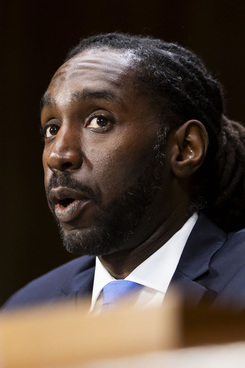 Credit: Yurii Kibalnik/Adobe Stock
Credit: Yurii Kibalnik/Adobe Stock
A federal judge in Newark, New Jersey, has ruled that the COVID-19 pandemic is a single event for purposes of determining payouts to policyholders under infectious disease business income insurance coverage.
U.S. District Judge Jamel Semper rejected arguments by the Count Basie Theatre, a nonprofit in Red Bank, New Jersey (the policyholder), that a series of executive orders by New Jersey Governor Phil Murphy closing entertainment venues during the pandemic each counted as a separate event and covered Zurich American Insurance Co.'s $100,000-per-event award.
The judge also rejected the theater's argument that it was entitled to $100,000 for each accident that occurred on two lots used as a theater, a music school building and a parking lot.
Judge Semper's ruling limited Zurich's payment to Count Basie to $100,000, while the theater sought the full insurance limit of $1.9 million.
Count Basie's attorney, Michael Canning of the Giordano Halleran & Ciesla law firm in Red Bank, said his client is considering an appeal.
“We are disappointed with the decision because we believed the policy would provide coverage. We believe one of the errors the court made was in stating the cause of the loss was the spread of the virus, when in fact the specific coverage in the policy provides that coverage is triggered by the issuance of an order by a government authority. That order must arise from the threat of the spread of the virus,” Canning said.
“The policy language itself is clear that any government order prohibiting entry into a building would be covered. There were multiple different executive orders issued, so in our view, each of those orders would be covered. There was not a single instance, but multiple instances,” Canning said.
Zurich American is represented by the law firm Mound, Cotton, Warran & Greenglass, whose lawyer, Philip Silberberg, declined to comment on the ruling.
 U.S. District Court Judge Jamel Semper of the District of New Jersey. Photo: Diego M. Radzinsci/ALM
U.S. District Court Judge Jamel Semper of the District of New Jersey. Photo: Diego M. Radzinsci/ALM
Semper found there was only one occurrence and cited policy language defining the term as including “all loss or damage resulting directly or indirectly from one cause or series of similar causes,” with all such loss or damage being treated as a single cause.
“Applying this standard, the Court finds that the injuries suffered by Count Basie were attributable to a common cause, namely the spread of COVID-19, and that the executive orders issued by Governor Murphy would not have been implemented absent the pandemic,” Semper wrote.
Semper also cited a 2021 New Jersey District Court ruling. T&L Catering v. Hanover Insurance Group; Because the governor's executive orders are “inextricably linked” to COVID-19, “the primary proximate cause of Plaintiffs' business-related losses is the COVID-19 virus, not the closure orders issued in response to the virus,” the lawsuit said.
Semper wrote that his view that the $100,000 communicable disease coverage limit applies per outbreak, not per premises, is supported by language in other parts of the policy. Emergency expense coverage and lock replacement coverage state the limit is “$25,000 per premises,” he said.
“The use of different words for the same or similar issue strongly suggests that a different meaning was intended. However, the same words were not used, and the inference must be drawn that the choice of different words was intentional,” Semper said, citing a 2008 decision by the U.S. Third Circuit Court of Appeals.
Because the policy uses a “per establishment” approach for other limits of coverage, Semper determined that Zurich’s policy intended the communicable disease limits to apply on a per outbreak basis.

